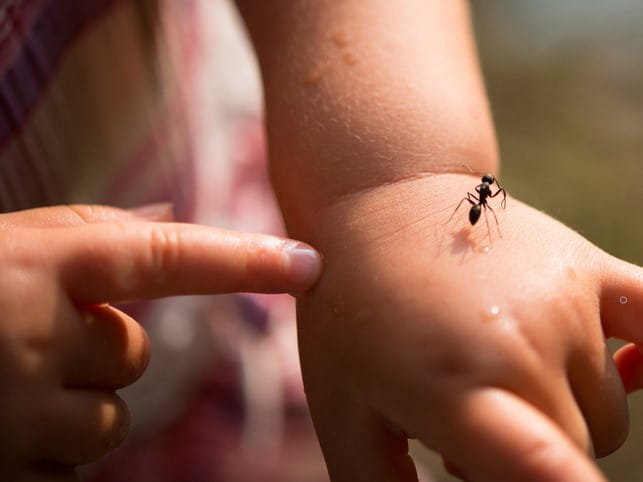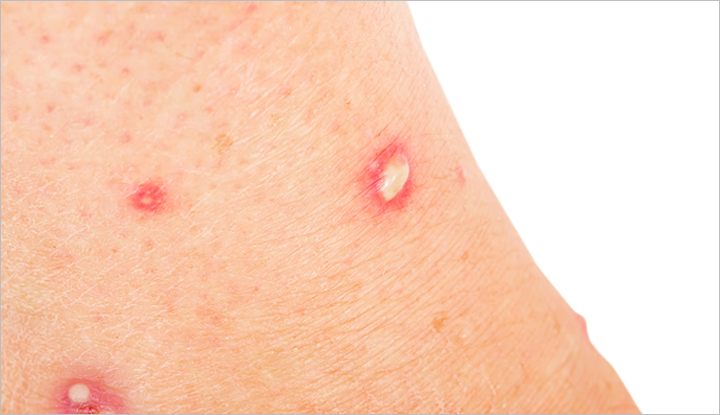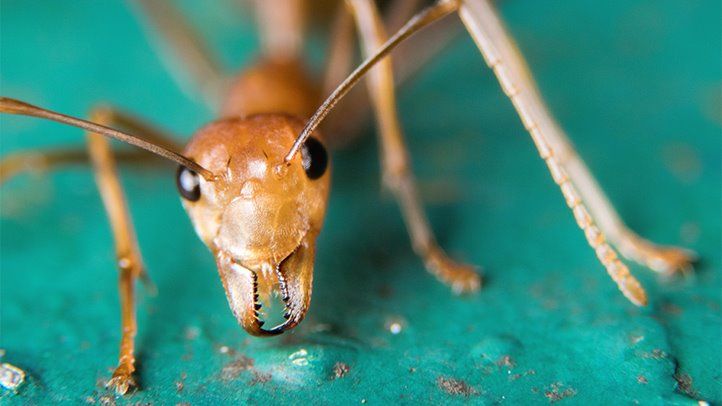If ant bites, wash the area with soap and water. Apply a cold compress for relief.
Ant bites can cause discomfort with symptoms like itching and swelling. Proper care is essential to prevent infection and manage symptoms effectively. Understanding how to treat ant bites can help alleviate discomfort and promote faster healing. We will explore practical tips on what to do if you experience ant bites, including first aid measures and home remedies.
Additionally, we will discuss when to seek medical attention for severe reactions to ant bites. By following these guidelines, you can effectively address ant bites and minimize their impact on your well-being.
Recognizing Ant Bites
If you are unsure whether you have been bitten by an ant, there are a few key signs to look out for. Ant bites typically appear as red, swollen bumps on the skin. The area may also feel tender to the touch, and there can be a stinging or burning sensation. Additionally, some individuals may experience itching in the bitten area. It’s important to be cautious and keep an eye out for these distinct symptoms.
It’s crucial to understand the difference between ant bites and stings. Ant bites are the result of an ant sinking its mandibles into the skin, while ant stings are caused by injecting venom through a stinger. In the case of ant bites, the raised, red welts typically heal within a few days. On the other hand, ant stings can lead to severe allergic reactions in some individuals. Being able to differentiate between the two is essential for proper treatment and management.
:max_bytes(150000):strip_icc()/FireAntBite-9f9561b55155424b997d2bbb6cbccc7a.jpg)
Credit: www.health.com
Managing Ant Bites
To manage ant bites, apply ice to reduce swelling, take antihistamines or hydrocortisone cream to stop itching, and use acetaminophen for pain relief. It is important to avoid scratching the bites to prevent infection, and they will usually dry up in about four days if left alone.
Applying Ice To Reduce Swelling
Applying ice to the ant bite can help reduce swelling and alleviate discomfort. Wrap ice in a cloth and gently press it against the affected area for 10-15 minutes.
Taking Antihistamines Or Topical Cream
To relieve itching and inflammation, consider taking an over-the-counter antihistamine or applying a topical cream such as hydrocortisone. These medications can help alleviate symptoms and promote faster healing.
Treating Allergic Reactions
Ant bites can sometimes trigger allergic reactions, which can be serious. If you experience certain symptoms or signs of an allergic reaction, it is vital to take prompt action to prevent complications. Here’s what you need to know about managing allergic reactions to ant bites:
When To Go To The Er For An Ant Bite
- Shortness of breath or wheezing
- Hives and itching with pale or flushed skin
- Difficulty breathing or swallowing
- Swelling, tingling, or tightness of face, eyes, throat
Symptoms Of An Allergic Reaction
- Severe swelling beyond the bite area
- Uncontrollable itching or rash
- Dizziness or lightheadedness
- Difficulty swallowing or speaking
Receiving An Epinephrine Injection
- If you exhibit signs of anaphylaxis, such as difficulty breathing or swelling of the face, seek immediate medical help.
- Upon arriving at the ER, medical professionals may administer an epinephrine injection to counteract the allergic reaction.
- Epinephrine helps to open airways, increase heart rate, and reduce swelling to prevent a severe outcome.

Credit: www.poison.org
Home Remedies For Ant Bites
When it comes to dealing with ant bites, applying a cold compress can help reduce swelling and alleviate itching. Using a mixture of water and vinegar can also provide relief, while over-the-counter antihistamines and corticosteroids help to alleviate symptoms. Additionally, keeping the bite area clean and avoiding scratching is crucial for proper healing.
Toothpaste As A Remedy
If you’ve been bitten by ants, using toothpaste can help alleviate the burning and itching sensation. Apply a small amount of toothpaste directly to the affected area to experience relief from the discomfort.
Using Aloe Vera Gel
Another effective remedy for ant bites is aloe vera gel. The cooling properties of aloe vera can soothe the irritated skin and reduce swelling. Apply a generous amount of aloe vera gel to the bite for relief.
Applying Baking Soda
If you’re looking for a natural solution for ant bites, baking soda can be beneficial. Mixing a small amount of baking soda with water to form a paste and applying it to the affected area can help neutralize the acidity of the ant bite and alleviate itching.
First Aid For Fire Ant Bites
If you are bitten by fire ants, promptly wash the affected area with soap and cold water to remove venom. Applying ice can help reduce swelling, and using antihistamines or hydrocortisone cream can alleviate itching. Seek medical attention if signs of severe allergic reactions like difficulty breathing occur.
If you’ve been unfortunate enough to be bitten by a fire ant, immediate first aid should be your top priority. These tiny creatures can deliver painful bites that can cause swelling, itching, and discomfort. Here are some simple steps you can take to alleviate the symptoms and promote healing.Slapping Or Brushing Off The Ants
The first thing you should do when you notice fire ants biting you is to quickly slap or brush them off your body. Use swift motions to remove the ants, making sure not to crush them and release more venom. By getting rid of the ants as soon as possible, you minimize the risk of additional bites and reduce the amount of venom injected into your skin.Washing With Soap And Cold Water
After removing the ants, it’s crucial to clean the affected area thoroughly. Wash the bite site with soap and cold water to remove any venom or bacteria that might have been left behind. Gently pat the area dry with a clean towel.Applying A Cold Compress
To reduce swelling and numb the affected area, apply a cold compress to the bite site. You can use a clean cloth soaked in cold water or wrap some ice cubes in a towel. Apply the compress for about 15 minutes at a time, repeating it every hour or as needed. Never apply ice directly to the skin to avoid frostbite.Conclusion
Remember, immediate first aid is crucial when dealing with fire ant bites. Slap or brush off the ants, wash the area with soap and cold water, and apply a cold compress to reduce swelling. If the symptoms worsen or signs of an allergic reaction appear, seek medical attention promptly. By following these simple steps, you can effectively manage fire ant bites and promote a faster recovery.
Credit: my.clevelandclinic.org
Frequently Asked Questions For What To Do If Ant Bites
How Long Do Ant Bites Last?
Ant bites typically last about 1 to 2 days and may cause redness and itching.
Does Toothpaste Help Ant Bites?
Toothpaste can help reduce burning and itching that comes with ant bites. Apply a small amount to the bite area for relief.
When Should You Go To The Er For An Ant Bite?
If you are experiencing shortness of breath or wheezing, hives and itching with pale or flushed skin, difficulty breathing or swallowing, or swelling, tingling, or tightness of the face, seek medical attention at the ER for an ant bite.
What Happens If You Leave An Ant Bite Alone?
If you leave an ant bite alone, it will usually dry up in about four days. Resist the urge to scratch, as it can cause infection. To reduce swelling, apply ice and take antihistamines or hydrocortisone cream for itching. Pain can be alleviated with acetaminophen and swelling can be reduced with corticosteroids.
Conclusion
Dealing with ant bites can be uncomfortable, but by following simple first aid measures, you can alleviate the symptoms and promote healing. Whether it’s using toothpaste to reduce itching or seeking medical attention for severe reactions, knowing how to respond can make all the difference.
By remaining vigilant and informed, you can effectively manage ant bites and ensure a speedy recovery.

I’m MD Tanvir, and I bring years of expertise gained from working closely with pest control companies to the forefront. My journey in the industry has inspired me to launch Bug Battler, a platform aimed at equipping people with the know-how to combat pests autonomously. Through Bug Battler, I aim to empower individuals with practical insights to tackle pest infestations effectively.

